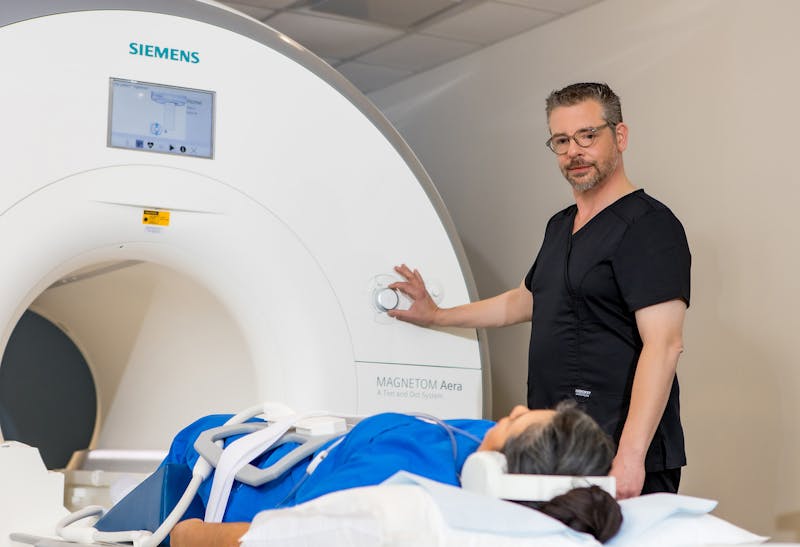
Magnetic resonance imaging (MRI) is among the most invaluable medical innovations of the 20th century. MRIs allow health professionals to more accurately scan different types of tissue in the body, while also detecting any abnormalities or pathologies that may be present. Particularly useful is the ability to take specific looks into major areas of the body susceptible to abnormalities, such as the brain, liver, joints, and spinal cord.
Technology that can process clear images of bones has already been established in the form of X-rays, but visibility into soft tissue was severely limited before the MRI. MRI machines provide a better image quality and more accurate diagnostic read than any other imaging technique. With the ability to produce images on any plane, the level of detail available in an MRI scan is far superior to that of CT scans or X-rays. This increased visibility enables doctors to see more soft tissue detail, making MRIs more versatile in examining and diagnosing a wide array of conditions.
A major benefit of this type of diagnostic imaging is that an MRI does not expose patients to harmful X-rays or radiation—it uses only strong magnetic fields, coils, and computer image processing to produce the scans. Because there is no radiation emitted, an MRI is safe to use with pregnant women and babies. Reported ill health effects resulting from an MRI are incredibly rare.
MRIs can also detect any potential abnormalities as related to the cardiovascular system, providing useful insight into blood circulation and blood vessels. The scans are used in disease detection and treatment monitoring, allowing doctors to more vigilantly track their patients’ health. There are many different types of MRI scans depending on which part of the body is being examined, including:
- Functional MRI (fMRI)
- Magnetic Resonance Angiography (MRA)
- Magnetic Resonance Venography (MRV)
MRI scanning is one of the most useful and advanced medical technologies to date. It is painless, non-invasive, and allows physicians to get a clear look inside the human body that they can use to better supplement their examinations and provide an accurate diagnosis. If you need to get an MRI or other form of diagnostic imaging, get in touch with Longhorn Imaging by calling (512) 444-8900.

